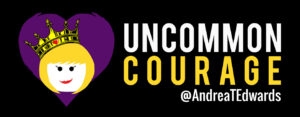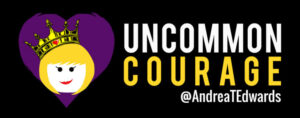Well we’re off to another tragic start in the natural disaster rankings in 2011. I found this interesting blog http://www.jesusblogspot.com/2011/01/natural-disasters-2011-recap-of-first.html so if you’re into Jesus, a good blog to follow (I’m not a potential candidate) but interestingly, it talks about the first 12 days of 2011. You’ll notice a lot of dead bird happenings going on… which I never even heard about, but of course, many think the end of days is due when birds fall out of the sky. We all believe different things right? Here is the first 12 days, according to jesusblogspot, typos and all:
- Earthquake magnitude 6.9 Argentina – January 1
- Earthquake magnitude 5.2 – Southern XinJiang, China – January 1
- Earthquake 7.1 magnitude Chile – January 2
- More Than 1,000 Dead Birds Fall From Sky in Arkansas – January 2
- Dead fish cover 20-mile section of Arkansas River – January 2
- Uganda yellow fever outbreak kills more than 40 – January 3
- Earthquake Near Japan Triggers Tsunami Warning – January 3
- Powerful earthquake hits south-east Iran – January 3
- Earthquake 7.0 magnitude hits northern Argentina – January 3
- Hundreds of dead blackbirds found in Louisiana – January 3
- 10,000s of Birds found dead in Manitoba – January 3 (apparently a province in Canada)
- Thousands of Birds fall from the sky in South America – January 3
- Major Flood in Rockhampton, Australia – January 3
- Dead Birds Found In Kentucky – January 4
- 100 tons of dead fish wash up on Brazil’s shores – January 4
- Hundreds of dead birds found in East Texas – January 5
- Dead birds in Sweden, millions of dead fish in Maryland, Brazil and New Zealand -January 5
- Shift of Earth’s magnetic north pole affects Tampa airport – January 5 (that’s in Florida)
- 40,000 crabs found dead on England beaches – January 6
- Heavy floods leave at least 35 dead in Brazil – January 6
- Earthquake 4.5 magnitude in California – January 12
- Huge Waves Destroy Homes in E. Indonesia – January 12
Of course there’s been a lot more. Extensive flooding in Queensland (not just Rockhampton) and Victoria, Australia, but also in Sri Lanka, South Africa, Indonesia, Angola, Germany, the US and many more areas. There have been mega blizzards and record low temperatures in the Northern Hemisphere, as well as bushfires in Western Australia and a mega cyclone in North Queensland. It’s been a crazy time in nature and this isn’t even everything.
To give you some perspective, according to Channel News Asia (http://www.channelnewsasia.com/) and interpreted by myself, here’s how it stands – 2010 was an exceptional year. Remember Haiti? Most of us have put the Haiti earthquake to the back of our minds, as well as the floods in Pakistan and China. But these three events killed 295,000 people and cost the insurance business US$130 billion.
Apparently the last time so many people died in disasters was in 1983, when 300,000 people died, mainly due to famine in Ethiopia. But then of course in 2004 nearly 250,000 died due to the tsunami around these parts, but that didn’t get a mention in this article. Nor did the huge Pakistan Earthquake a few years back…
In 2010, 950 natural disasters were recorded, making it the second worst year since 1980. The average number of events over the past 10 years is 785 – and who knows what is measured. To give you an idea of deaths last year, 222,570 people died in Haiti (with three million left homeless,) 56,000 died in a combination of heatwaves and forest fires in Russia, the earthquake in China killed 2,700, floods in Pakistan killed 1,760, and August floods in China killed another 1,470. And that’s just deaths – the ramifications for those left living are rarely quantified…
The American continent suffered the most disasters – 365 in total – with 310 in Asia. A total of 120 natural disasters were recorded in Europe, 90 in Africa and 65 in Australia and Oceania. Apparently an “average” year sees 77,000 dying in natural disasters.
Many of us are glued to the footage coming out of Japan, and before that we were glued to what was coming out of Christchurch and Australia. It’s completely horrifying and almost impossible to understand. I find that unless you’ve been to a place impacted, or understand the culture of the place hit, we just can’t comprehend what it is like. So we sit and watch houses being washed away, ships plummeting into bridges, collapsed buildings full of who knows how many people, cars and trucks racing from the onslaught and not making it – it’s very heart breaking. And then there’s the whole nuclear fallout coming into question.
Many of us might wonder what those people were like? How did they live their days? Did they have a good heart or do they wish they could have lived a better life? What were their final thoughts? What were they doing when the waves hit? Feeding their children? Making love? Praying? How did they face that moment of their death? How terrified were they?
I have friends in Japan and everyone is Facebooking them saying get out, come home! But is “home” any safer? Are we really “safe” anywhere? And why do humans cling so desperately to living anyway? Why are we like that?
As most of us are aware, the world is a giant ball of energy and sometimes that energy needs to get out. We’ve inhabited this world and sometimes we’ve chosen to do so in parts that are high risk. We’ve known that for a long time and we choose to stay put. We buy land, build houses and sometimes they get knocked down and a lot of people die… is that Mother Nature’s fault? I don’t think she’s “angry” at us, she just doesn’t give a shit. She’s got a job to do, and releasing her energy is a part of it. She’s constantly evolving and balancing herself –that’s what she does. Additionally, we’re at the mercy of greater cosmic forces, and that’s life. Sometimes this stuff happens and we’re just in the wrong place. It’s not personal, it just is.
So what do we do? All I know is that I’m not going to live my life in fear of some catastrophe ending my life. It might happen for sure, but living in fear of a day that may never come is hardly a healthy way to be. And if it does come, I’m sure I’ll be scared, but I also know I’ll hug my family tight and be thinking of the wonderful days I’ve enjoyed.
I think there’s been too much fear in our world for too long. Fear of terrorism, fear of natural disasters, fear of rape or murder, fear of being bashed or mugged, fear of being poor, fear of our neighbours, fear of everything…. it consumes us and it consumes our world, and if we’re all living in fear and thinking fearful shit, well maybe that’s why more of it happens? Our thoughts are powerful and when we’re all directing thoughts in the same direction I believe the things we fear the most tend to happen. Dan Brown’s latest book, “The Lost Symbol” summed up the collective consciousness nicely – do you believe in it? I reckon I do.
So I ask you this. Are you going to sit there and think about what could be coming? Fearing the worst? Potentially making it come to pass just by thinking about it? Oh and by the way, the chance of you being a victim is .0001% approximately give or take where you’re living and how high the known risk is. So a bit of perspective there.
Or are you going to put a smile on your face, donate money to help the recent victims, live a good life, do those things you’ve always wanted to do, as well as making people’s lives better in whatever way you can?
That’s pretty much where I’m at. My heart and thoughts are with the people of Japan (and all the other victims this year so far) as they pick themselves up, shake themselves off and start rebuilding their lives – which they will do because Asians move on better than Westerners – it is a very admirable quality in these parts and a great lesson for all of us. Soon they will be burying their dead and the grief will be unbearable, but time will heal them as much as time can, and the rest of the world will forget or be focusing on the next thing this crazy bitch of an earth throws at us.
I truly believe that these experiences should have one result. They are reminders and great teachers on what is important – to live, laugh and love now, today, every moment, and to honour our beautiful planet, because anyone of us can be impacted at anytime, but we probably won’t be. That’s life and the ending of life is just another part of the cycle.
Yours, without the bollocks
Andrea
PS: Boris Johnson, the Mayor of London, summed it up beautifully is his Telegraph column today – http://www.telegraph.co.uk



